Relive the Heady Days of the Early 2000s New York Rock Revival in This New Show Featuring the Strokes and the Yeah Yeah Yeahs
artnet news

Photographer Colin Lane’s cover for The Strokes’ debut album, Is This It, from 2001.
The downtown New York rock scene of the early 2000s will come back to life in an art gallery next week.
The Strokes, the Yeah Yeah Yeahs, Interpol, and numerous other outfits who sold your turntables and bought guitars in the post-9/11 rock-revival will share wall space with artists who came of age in the same period, such as Urs Fischer, Ryan McGinley, and Doug Aitken.
The show, an extension of Lizzy Goodman’s best-selling oral history, Meet Me in the Bathroom: Rebirth and Rock and Roll in New York City, 2001–2011, takes places at the Hole gallery on the Bowery, not far from venues like the Mercury Lounge and Luna Lounge—hotbeds of the downtown music scene of the time.
Organized by UTA Artist Space and presented by Vans, it aims to mimic the grimy, drug-driven vibe of the era: battered microphones and scuffed-up high tops from Karen O will be juxtaposed with Doug Aitken’s broken iPhone. A guitar belonging to Dave Sitek of TV on the Radio will share space with Ryan McGinley’s youthful Polaroids. The artworks that eventually became iconic album covers—Urs Fischer’s photo of a hand destroying an egg, which graced the front of the Yeah Yeah Yeah’s It’s Blitz, for instance, or Colin Lane’s sultry black-and-white photograph for the Strokes’ Is This It—will hang next to examples of the albums themselves.
“We want it all to bleed together,” says Goodman, who curated the show with Hala Matar. “We want the sounds of this place to sit next to a flyer someone might have collected from some shitty show that didn’t even have any bands you ever heard of—but 10 people you have heard of attended.”
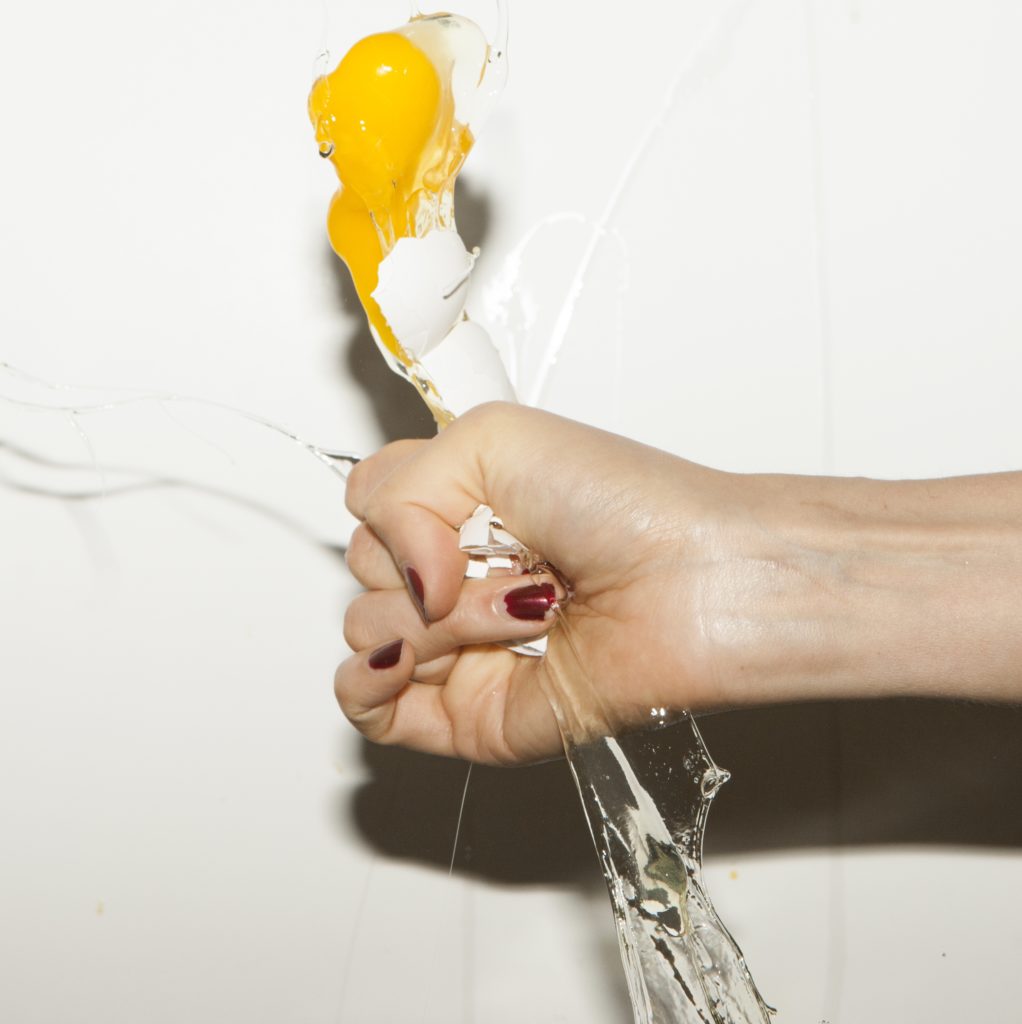
Urs Fischer’s cover for the Yeah Yeah Yeah’s 2009 album, It’s Blitz.
There’s a reinvigorated sense of interest in this time period, Goodman notes, suggesting that the current socio-political mood has nudged a generation of people back to the last era of cultural upheaval and the art that came out of it.
“There was this sense of, fuck, we’re going to die,” Goodman says, recalling the moment after 9/11 when contemporary life was thrown into crisis. “When you’re 22, what do you do with that information? You party. You go out seven nights a week, not five nights a week. But you also pursue the thing you’ve maybe been thinking you have lots of time to do. Because you might not.”
Goodman cut her teeth as a music journalist in the same era that these bands ruled New York. She conducted interviews with more than 200 musicians for Meet Me in the Bathroom, which was published in 2017.
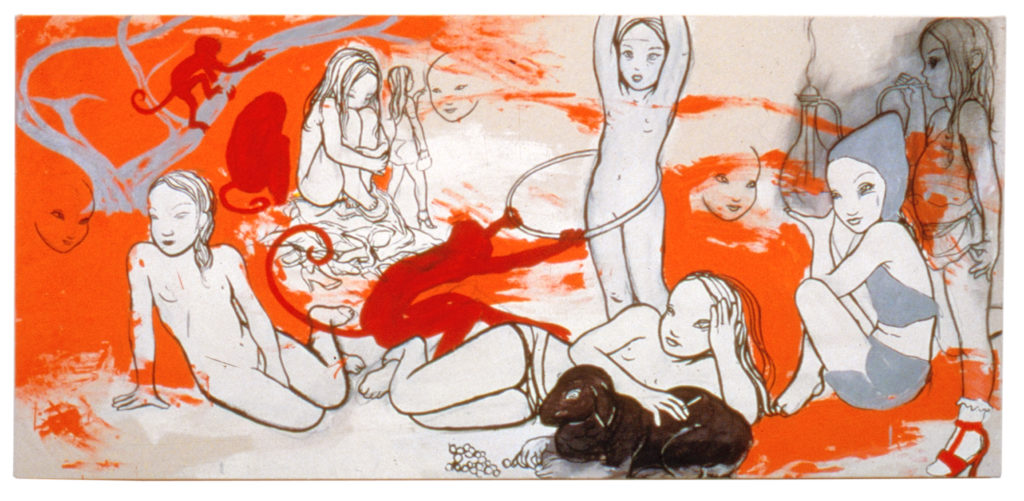
Rita Ackerman, We Mastered the Life of Doing Nothing (1994).
Though she didn’t come into the exhibition with as much familiarity with the art of the period, she found themes that emerged across media. She points to artists like Dan Colen, Dash Snow, and Nate Lowman, suggesting they embodied the same ethos that animated Interpol or the Strokes: an up-all-night-attitude, a downtown cosmopolitan cool that stood against the provincial, flannel-clad grunge of the ’90s.
One particular painting in the show illustrates her point: A languid, blood-red canvas by Rita Ackerman depicting nude kids—confident, aloof, vulnerable; lounging, playing, imbibing. It’s called We Mastered the Life of Doing Nothing (1994).
“Everywhere is this idea of leaning into the ennui of adolescence,” Goodman explains. “It starts with the myth of New York—the idea of coming to this place to sort of do nothing except for scour the streets and make art out of garbage. That’s something I heard from every band I’ve ever interviewed from this time.”
“There is this sense of youth lived through the haze of death and loss,” she adds. “I feel that coming off in the work of a lot of these other artists as well.”
“Meet Me in the Bathroom: The Art Show” will be on view September 4–22, 2019. See more works from the exhibition below.
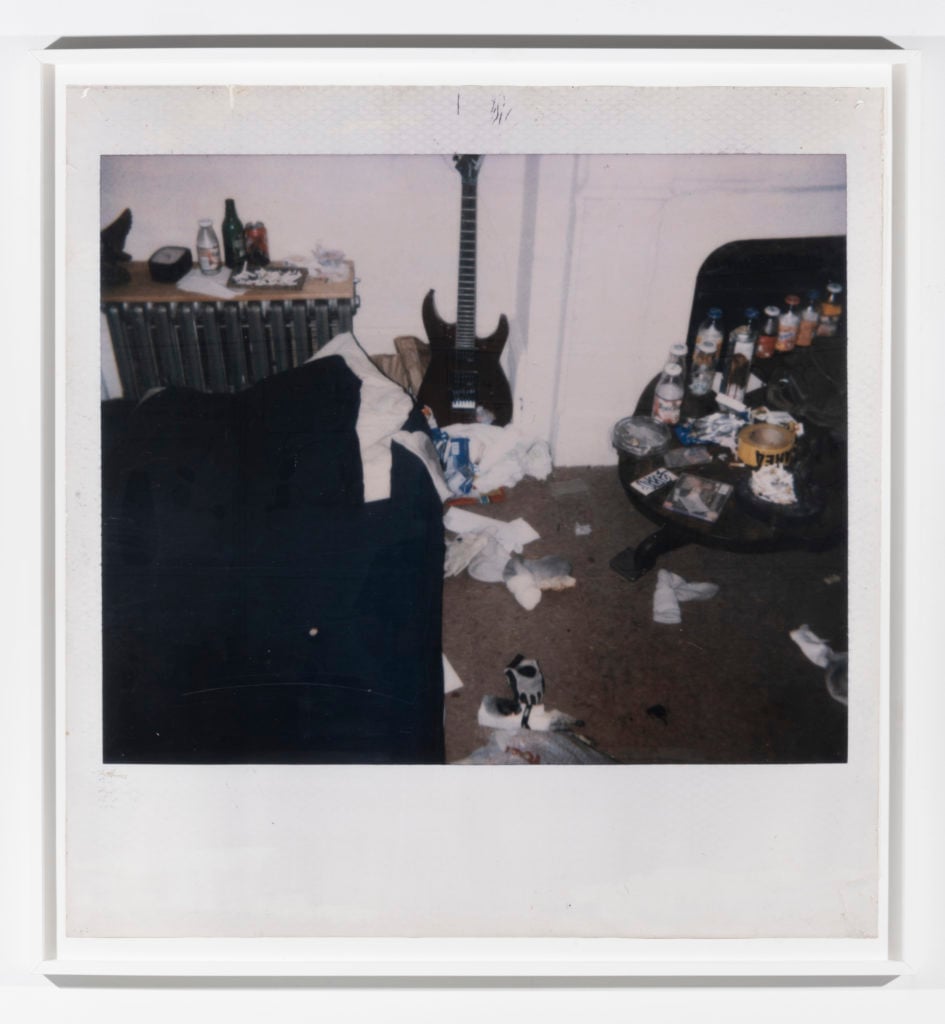
Dash Snow, Untitled Polaroid (2004).
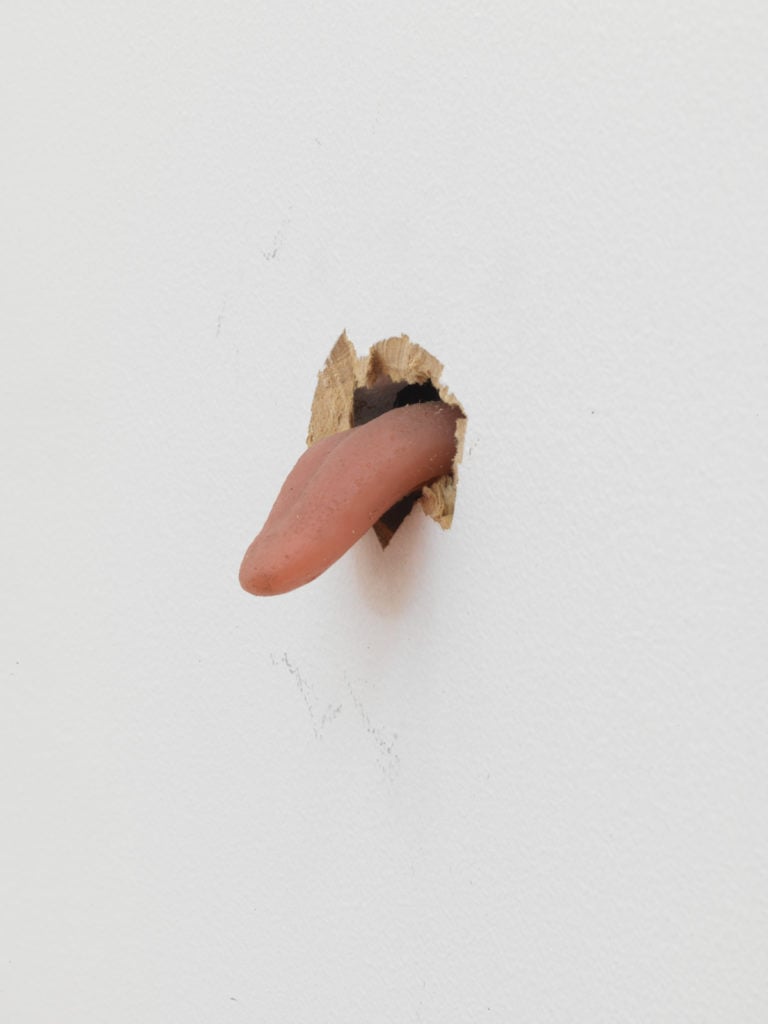
Urs Fischer, Noisette (2009). Courtesy of the artist.
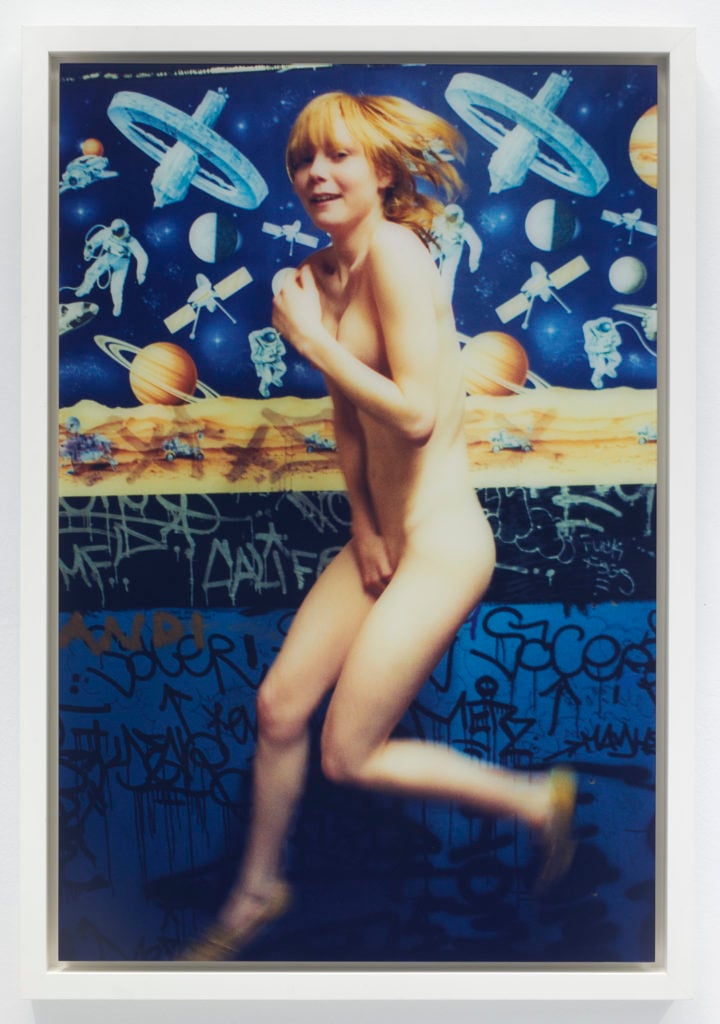
Ryan McGinley, Lizzy (2002).
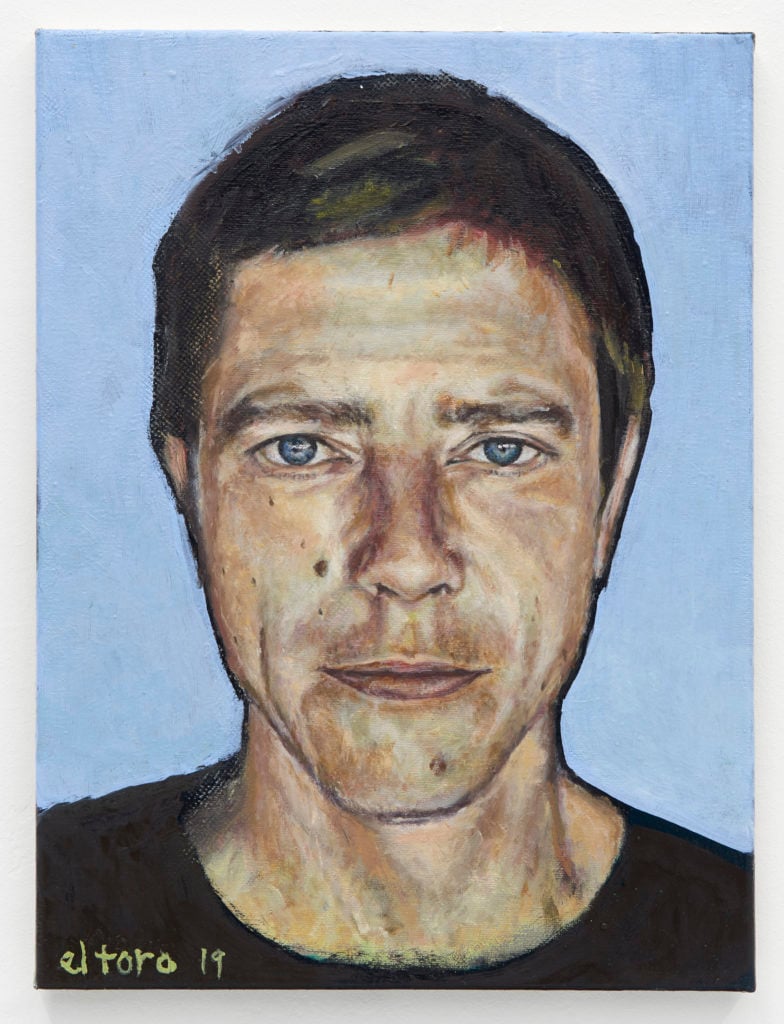
Paul Banks, To Be Titled (2019).
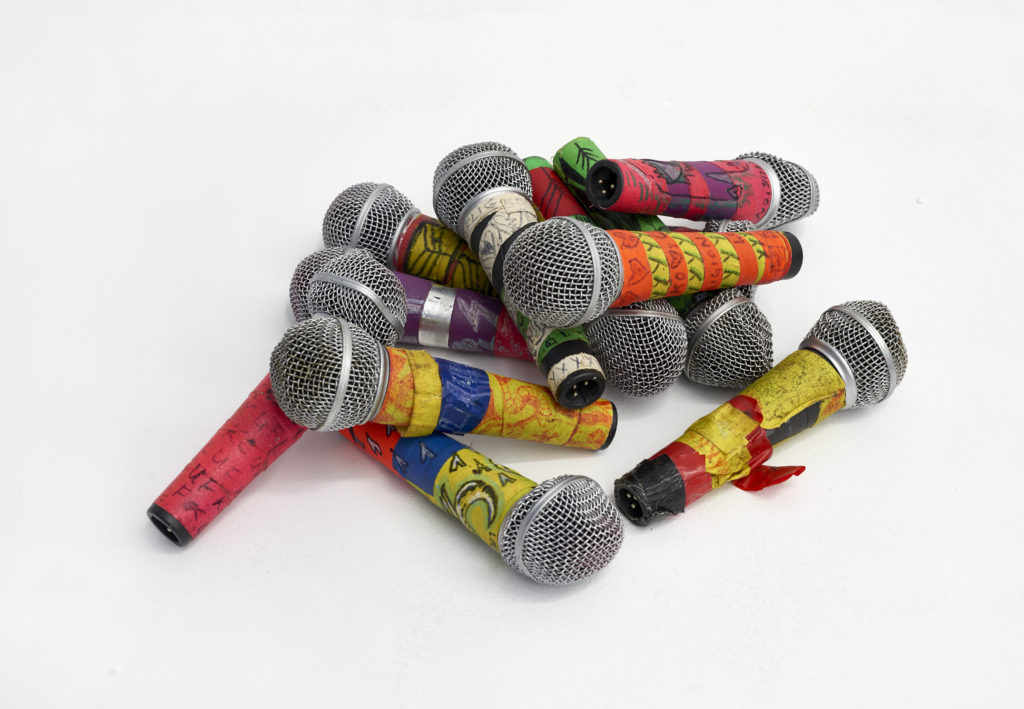
Karen O, Assorted Mics, 2003–15